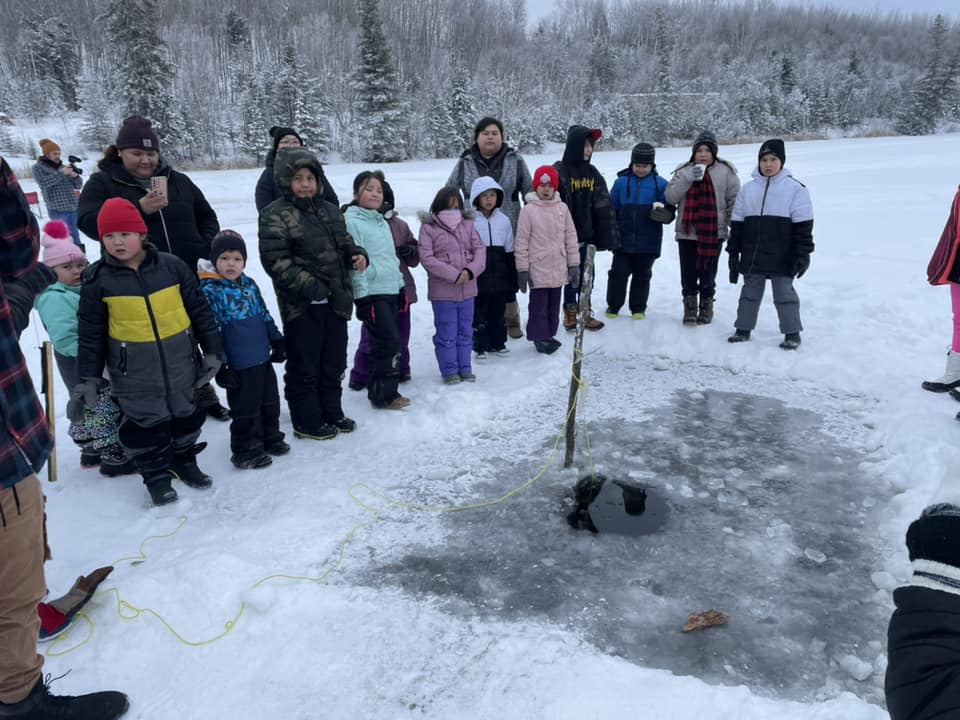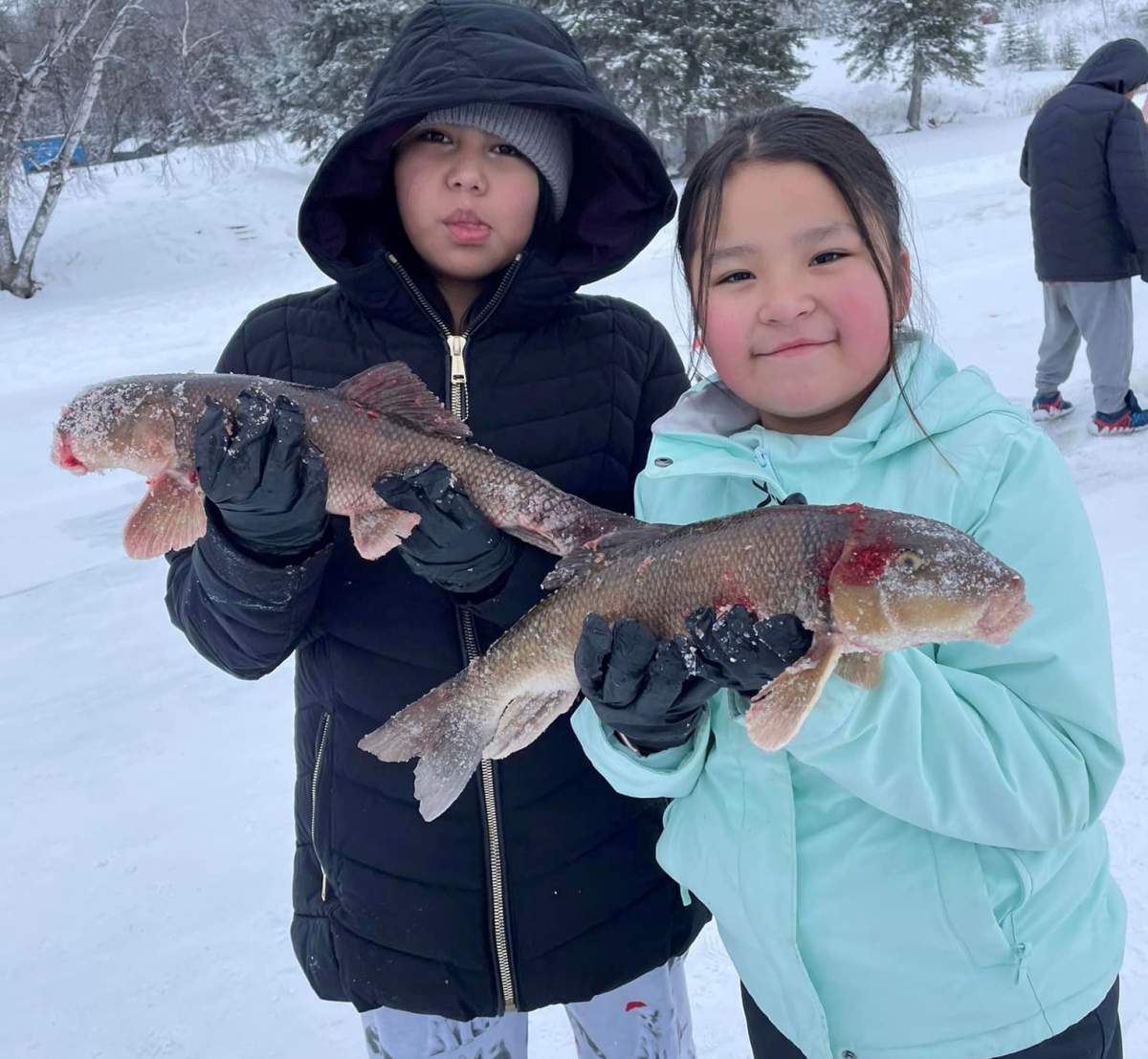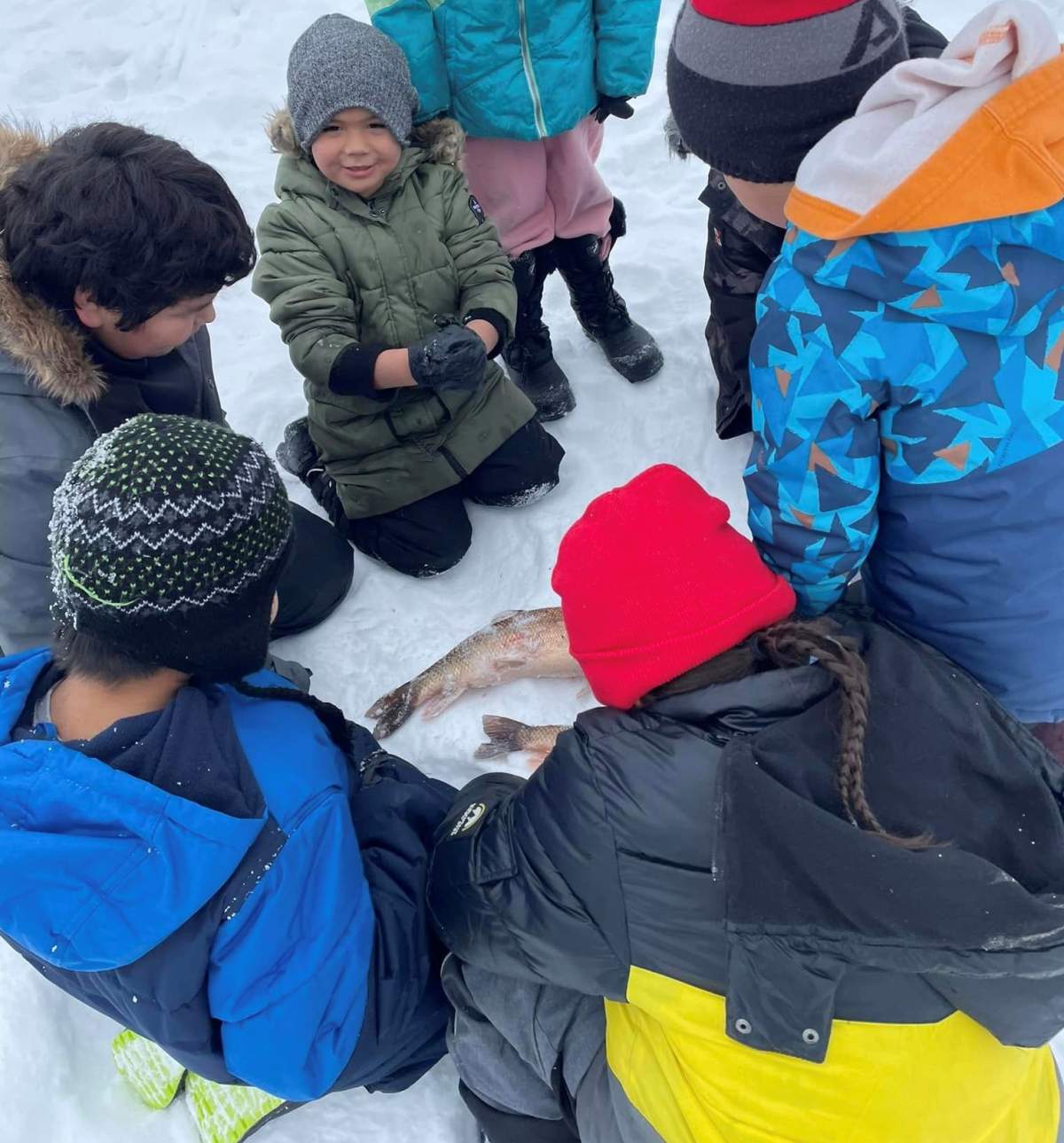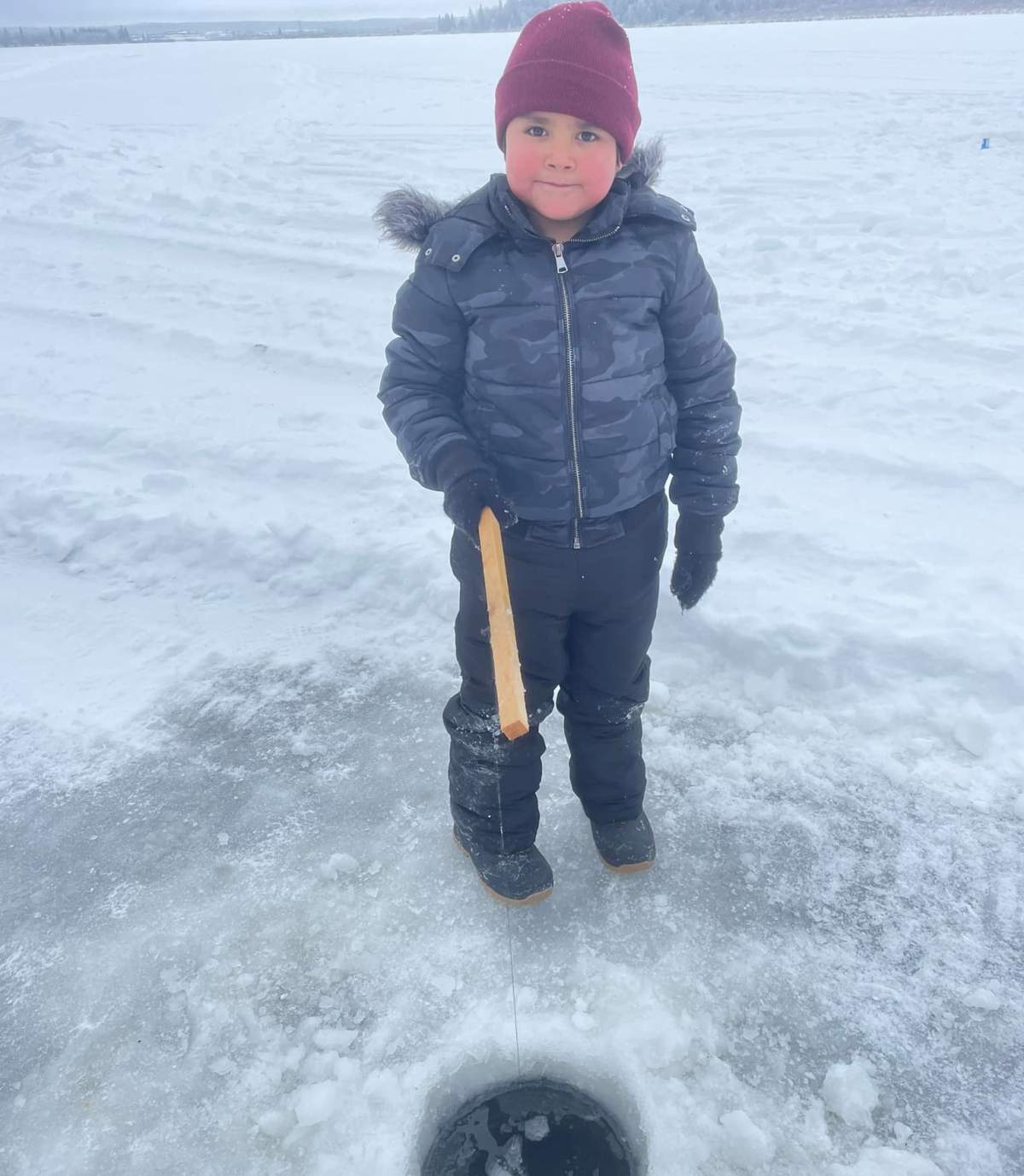A land-based educator aims to retain Indigenous teachings to the younger ones by incorporating a program within the Sturgeon Lake First Nation school curriculum.

Tanya McCallum has been a land-based teacher for five years and doesn’t plan to stop as she says there is a need to help kids learn to live off the land.
“We’re kind of dissecting it, localizing it, and making it a land-based curriculum,” said McCallum.
“I collaborate a lot with the teachers … what we’re really trying to do at our school is we’re trying to decolonize our curriculum and localize it and Indigenize it – bringing our culture into the curriculum.”
This week, McCallum took all the grades from the Sturgeon Lake Central School out to the local lake where they learned to ice fish.
- ‘Something just went off’: Canadians in Middle East describe ‘surreal’ Iran missile strikes
- Carney and India’s Modi strike new energy partnership
- As Iran conflict spirals, there are 85K Canadians in Middle East, GAC says
- ‘At first I cried’: How Iranian Canadians are reacting to the U.S. strikes in Iran
It was a great experience to re-learn a tradition that student River Ballantyne’s family has instilled for years.

Get breaking National news
“My dad taught me and so did … my moshum (grandpa in Cree),” he said. “I want to learn how to survive in the wild in any situation where I have to survive.”
So far, the students have learned to make snowshoes and quinzees (snow shelters), how to chop wood and build a fire, and how to filet and clean the fish they caught.
“It’s very rewarding when I know the kids are excited and they’re learning something,” said McCallum. “The (students) come to my classroom and ask me, ‘when are you taking out that taking us out again?'”

The land-based teaching occurs all year round. Depending on the season, the activities vary. McCallum used the current cold temperatures to her advantage to have ice fishing week.
“It’s not only setting the nets and ice fishing; we’re identifying species of fish and also filleting.
“Every week is different and there’s got to be a lot of flexibility … because we don’t have control of the weather. So, we have to play it by week or by day,” she said.
McCallum is planning a winter camp where students will be doing things like archery, shelter building, rabbit snaring, meat cutting, fishing, animal tracking, nature hikes, snowshoeing and so on.
The fish that the students caught during ice fishing week will be filleted, packaged and delivered to members of the community.












Comments
Want to discuss? Please read our Commenting Policy first.